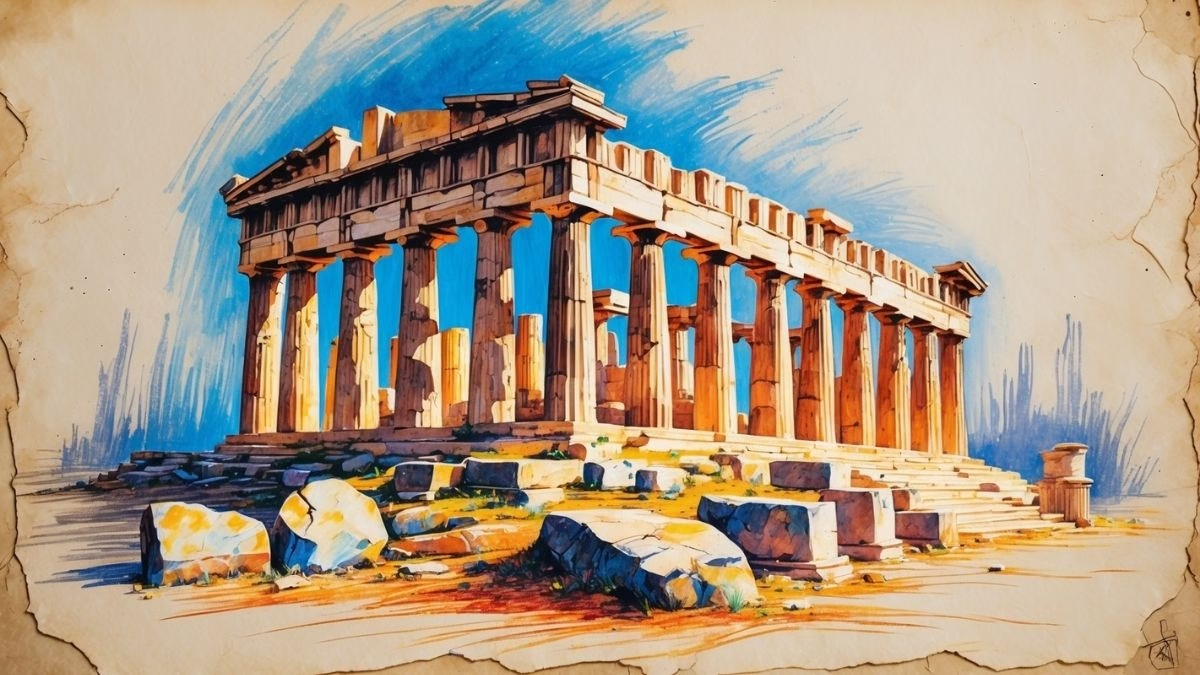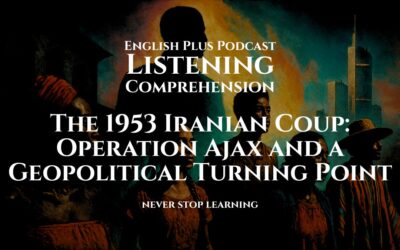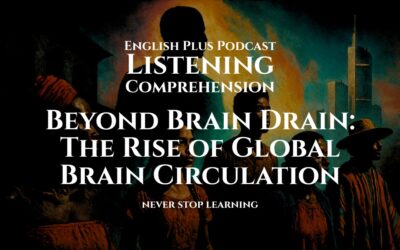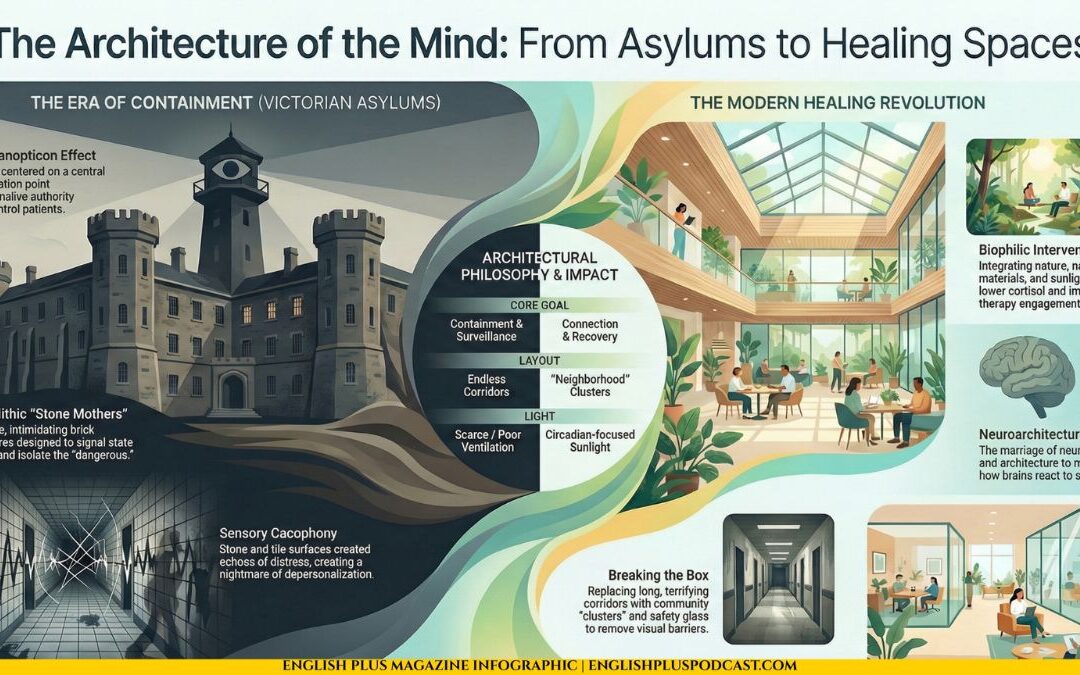Boost Your Listening Score: The Legacy of Ancient Greece
Ready for another round of high-level listening practice? Today’s topic is The Cultural Legacy of Ancient Greece. For international exams, a common question type involves understanding the speaker’s argument and identifying the main points and supporting details. As you listen to this lecture, focus on signposting language. These are the words and phrases a speaker uses to guide you through their talk, such as “Let’s begin with…”, “Another key contribution was…”, or “As a result…”.
A great technique is to structure your notes based on these cues. For example, if you hear the speaker mention three main areas, create three sections in your notes. This will help you organize the information in real-time and make it much easier to locate answers later. Pay attention to the connections the speaker makes between different ideas. Good luck!
Listening Audio
Listening Transcript: Please do not read the transcript before you listen and answer the questions.
The Cultural Legacy of Ancient Greece
Good morning. When we speak of the foundations of Western civilization, it is almost impossible to overstate the profound and enduring legacy of Ancient Greece. From the rocky hills of Attica and the shores of the Aegean Sea, a civilization emerged that would, in a remarkably short period, lay the cornerstone for much of our modern world’s politics, philosophy, science, and art. Today, we will explore some of the most significant contributions of the ancient Greeks and trace their influence through the centuries.
Let’s begin with what is perhaps Greece’s most celebrated gift: democracy. The word itself is Greek, from ‘demos,’ meaning ‘the people,’ and ‘kratos,’ meaning ‘rule.’ In the 5th century BCE, the city-state, or ‘polis,’ of Athens developed a radical new system of government. While it was far from our modern, inclusive democracies—as it excluded women, slaves, and foreigners—it was a revolutionary paradigm shift. For the first time, eligible citizens had the right and the duty to participate directly in the affairs of the state. They could debate, propose laws, and serve on juries. This principle of citizen governance, the idea that power should reside with the people, has echoed through history, influencing the Roman Republic, the Enlightenment thinkers, and the founding documents of modern nations like the United States and France.
From the political realm, we turn to the intellectual. Ancient Greece was the crucible of Western philosophy. Prior to the Greek thinkers, explanations for natural phenomena were typically rooted in myth and religion. The Greeks, however, began to seek rational, evidence-based explanations. This intellectual revolution was spearheaded by three of history’s most famous philosophers: Socrates, Plato, and Aristotle. Socrates, through his famous Socratic method of relentless questioning, challenged people to examine their own beliefs and seek truth through reason. He famously stated, “The unexamined life is not worth living.” His student, Plato, explored abstract concepts like justice, beauty, and equality in his written Dialogues and founded the Academy in Athens, the first institution of higher learning in the Western world. Plato’s student, Aristotle, in turn, made monumental contributions to logic, ethics, biology, and physics. His systematic approach to inquiry and classification became the foundation for scientific study for nearly two millennia. The very act of thinking critically and logically about the world is, in many ways, a continuation of the conversations started in the marketplaces of ancient Athens.
The Greek genius was not confined to politics and philosophy. Their aesthetic principles have shaped Western art and architecture for centuries. If you look at the Parthenon, the temple dedicated to the goddess Athena on the Athenian Acropolis, you see the ideals of harmony, balance, and proportion. The use of columns—Doric, Ionic, and Corinthian—became a fundamental element of classical architecture, a style that was later emulated by the Romans and revived during the Renaissance and Neoclassical periods. You can see echoes of the Parthenon in government buildings, museums, and universities across the globe. In sculpture, the Greeks moved from the rigid, stylized forms of earlier cultures to a breathtakingly realistic and idealized depiction of the human body. They celebrated the beauty and potential of humanity in their art.
Furthermore, we must not forget the Greek contributions to literature and drama. They invented theatre as we know it. The great playwrights—Aeschylus, Sophocles, and Euripides for tragedy, and Aristophanes for comedy—explored timeless human themes of love, loss, pride, and the conflict between the individual and society. The concepts of the tragic hero and the dramatic chorus originated here. Similarly, epic poems like Homer’s The Iliad and The Odyssey are not just thrilling stories of war and adventure; they are foundational texts of Western literature that have been studied and reinterpreted for generations.
Even our sporting culture owes a debt to the Greeks. The ancient Olympic Games, first held in 776 BCE in Olympia, were a major religious and athletic festival. Athletes from different city-states would gather to compete, and a sacred truce would be declared to ensure safe passage. While the ancient games were very different from our modern spectacle, the ideals of fair competition, human excellence, and international goodwill were revived when the modern Olympic Games were established in 1896.
In conclusion, the legacy of Ancient Greece is not a relic of a bygone era; it is a living, breathing part of our contemporary world. Their pioneering experiments in democracy continue to inform our political ideals. Their philosophical inquiries established the very framework for Western thought. Their artistic and architectural styles are still seen as a pinnacle of aesthetic achievement. And their literary themes continue to resonate with us today. The ancient Greeks posed fundamental questions about how we should govern ourselves, how we should think, and what it means to be human—and we are all, in some way, still living in their world.
Listening Quiz
Keywords & Phrases
- Profound: (adjective) This means very great or intense. We used it to describe the “profound and enduring legacy” of Greece, meaning their influence was deep and significant.
- Cornerstone: (noun) Literally the first stone set in the construction of a foundation, this word is used metaphorically to mean a fundamental, essential part of something. We said Greece “lay the cornerstone” for Western politics and philosophy.
- Polis: (noun) This is the Greek word for a city-state. In the lecture, we explained that Athens was a “polis” to use the historically accurate term for these independent cities that functioned like small countries.
- Paradigm shift: (phrase) This is a fundamental change in the basic concepts and practices of a discipline or area of thought. We used it to describe Athenian democracy because it was a “revolutionary” new way of thinking about government, not just a minor adjustment.
- Crucible: (noun) A crucible is a container used for melting substances at very high temperatures. Metaphorically, as used in the lecture (“the crucible of Western philosophy”), it means a place or situation where different elements interact, leading to the creation of something new and powerful.
- Socratic method: (phrase) Named after the philosopher Socrates, this is a form of dialogue where one person asks a series of probing questions to another. We mentioned that Socrates used the “Socratic method” to challenge people’s assumptions and guide them toward logical conclusions.
- Monumental: (adjective) This means great in importance, extent, or size, like a monument. We described Aristotle’s contributions as “monumental” to emphasize their vast scale and lasting importance.
- Aesthetic principles: (phrase) ‘Aesthetic’ relates to the appreciation of beauty. “Aesthetic principles” are the set of rules or ideas about what makes something beautiful. We used this phrase to talk about the Greek ideas of harmony, balance, and proportion in their art and architecture.
- Emulated: (verb) This means to match or surpass a person or achievement, typically by imitation. The lecture stated that Greek architectural styles were “emulated by the Romans,” meaning the Romans copied and adapted them.
- Bygone era: (phrase) This is a poetic way of saying a time period that is in the past. The lecturer concluded by saying Greece’s legacy is not a “relic of a bygone era,” meaning it’s not just something from a long-dead past but is still relevant today.












0 Comments